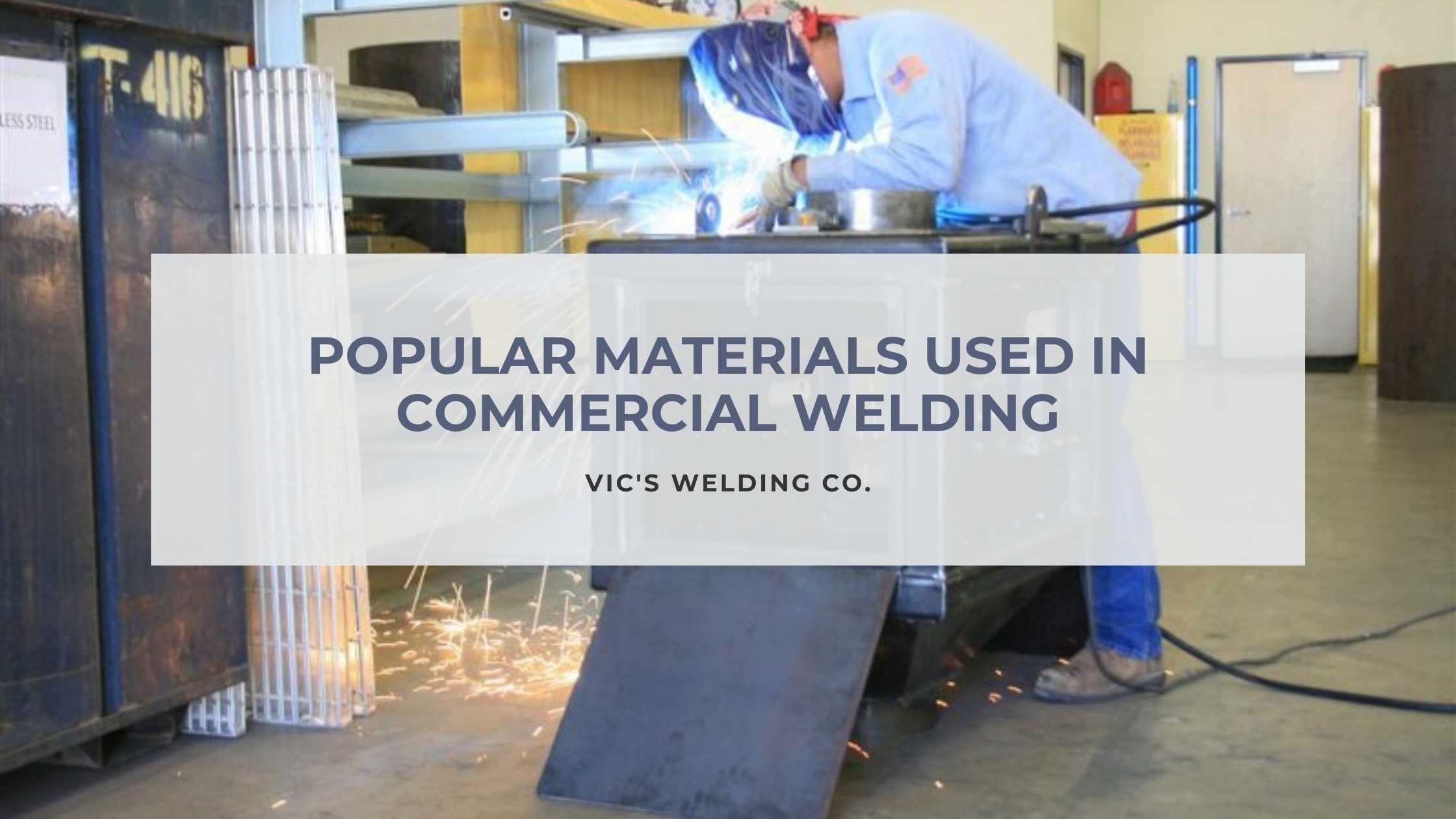A commercial welding company like Vic’s Welding Co. has experience joining various materials together to produce durable, high-quality products for different applications. Two of the most popular materials for doing this are aluminum and steel, both of which provide substantial benefits for fabricating products for commercial and industrial applications, such as pressure vessels and water treatment piping.
Here is a brief overview of aluminum and steel.
Aluminum and Steel
Aluminum
Conscientious consumers will appreciate aluminum for its sustainability. According to the Aluminum Association, “the use of aluminum lowers energy costs and carbon emissions in dozens of applications,” with recycled aluminum requiring a mere eight percent of the energy more energy-intensive materials need during production. In addition, aluminum is incredibly durable and corrosion-resistant, making it ideal for various markets such as the aerospace and transportation industries.
Steel
Another sustainable material used in commercial welding is steel. There are various types of steel, including but not limited to mild steel, stainless steel, and structural steel. The latter is commonly used to fabricate transportation systems, communication networks, water plants, and electric systems – many other types are ideal for various commercial, industrial, and residential products. In addition to being infinitely recyclable, steel is incredibly durable and, when choosing galvanized materials, corrosion-resistant.
Standard Welding Processes
Tungsten Inert Gas (TIG) or Metal Inert Gas (MIG) welding processes are used to fabricate aluminum, stainless, and other materials. These techniques, both of which were developed in the 1940s, have distinct advantages and disadvantages. Because of that, it is essential to work with an experienced commercial welding company like Vic’s Welding Co. Let’s take a quick look at the difference between these two standard processes.
Tungsten Inert Gas (TIG), more formerly known as Gas Tungsten Arc Welding (GTAW), utilizes a non-consumable tungsten electrode and inert shielding gas. The latter protects the weld from harmful gases in the atmosphere. TIG welding is a manual process, requiring the use of both hands – one to hold the torch and the other feeding the rod, making it one of the more challenging techniques to master. However, it is also one of the most versatile, allowing an experienced commercial welding company to achieve high-quality welds on various metals, aluminum and stainless included.
Metal Inert Gas (MIG), commonly referred to as Gas Metal Arc Welding (GMAW), is considered a semi-automated welding technique. It utilizes a continuously fed consumable electrode wire rather than a non-consumable tungsten electrode. As the metals melt, they form the weld, fusing raw materials such as aluminum and steel. Like TIG welding, the process is protected by a shielding gas and is ideal for various materials. The beauty of MIG welding is that it is an efficient and effective way to produce high-quality welds to fabricate a wide range of commercial and industrial products.
Contact a Commercial Welding Company Today
With over twenty-five years of experience, Vic’s Welding Co. is your local commercial welding company, providing in-shop custom fabrication and equipment manufacturing. We specialize in various welding processes, including but not limited to MIG and TIG welding, to weld raw materials such as aluminum and stainless steel.
Our ASME and NBBI certified company services various industries throughout the greater Phoenix metropolitan area, including water treatment plants and wireless tower construction. In addition, we possess advanced equipment to offer miscellaneous, onsite repairs. For more information or to schedule an appointment, contact us today.
Resources:
“The Aluminum Advantage: Aluminum 101.” The Aluminum Association.
“The History of Welding.” Miller Welds, April 21, 2020.
“The Three Popular Types of Welding Explained.” Welding Insider, January 2021.
“Why Steel: Sustainability.” American Institute of Steel Construction (AISC).

